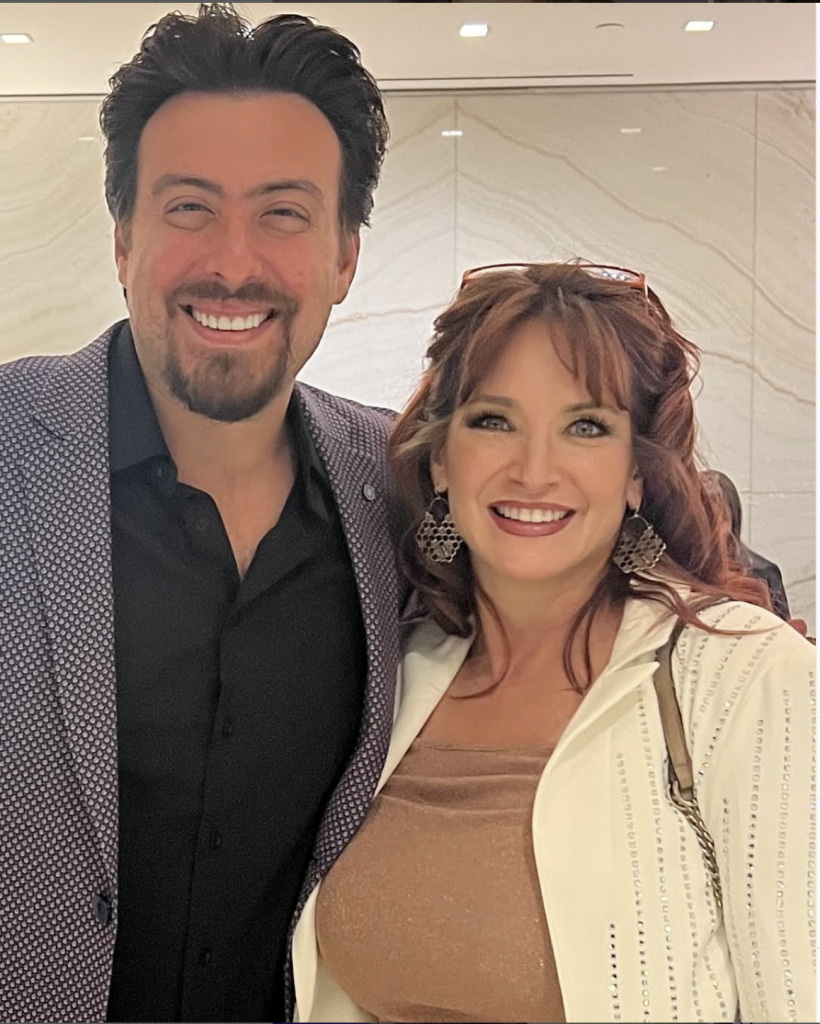Sales and magic have more in common than you might think. At first glance, a master magician and a top salesperson might seem like they’re in completely different worlds. But after watching world-class magician Tommy Wind perform, I realized that the same principles that captivate an audience in magic can also be used to close sales in live events.
A magician doesn’t just show a trick—they create an experience. They guide your attention, build suspense, and lead you to a moment of wonder where you feel like magic just happened rather than being done to you. That’s exactly how sales should feel.

Too many salespeople focus on convincing instead of guiding. They push instead of building anticipation. And they wonder why their prospects hesitate or walk away. Watching Tommy Wind perform, I realized that great salespeople—like great magicians—don’t force their audience to believe. They make it impossible not to.
Let’s break down the three biggest sales lessons I learned from watching a magician work his craft.
1. The Biggest Thing I Learned About Sales – The Art of Capturing Attention Immediately
A magician has seconds to grab your attention before your mind starts wandering. If they don’t hook you immediately, the illusion won’t land.
Sales work the same way—especially in live event sales. Whether you’re selling from the stage or in a one-on-one conversation, your first few seconds set the tone for the entire interaction.
How Magicians Do It:
- They use visual cues—props, gestures, or flashy movements—to grab attention.
- They ask intriguing questions that make the audience curious.
- They create mystery—starting a trick but not finishing it right away.
How Salespeople Should Do It:
- Start with a bold statement or question that makes your prospect stop and think.
- Use eye contact and body language to command attention.
- Make them curious about what’s next—don’t reveal everything at once.
A great opening in sales is like the beginning of a magic trick—it sets the audience up for something amazing.
2. Control the Focus: Lead, Don’t Push
Magicians don’t force you to look where they want. They guide your focus so naturally that you don’t even realize it. A great magician controls the entire experience without making you feel manipulated. I’m always look back at each experience to see what I learned about sales.
In sales, pushing someone toward a decision creates resistance. But guiding their attention toward the value of your offer makes buying feel natural.
How Magicians Do It:
- They use sleight of hand to direct attention where they want.
- They control the pacing—speeding up or slowing down to maximize impact.
- They use anticipation—holding onto the reveal until the perfect moment.
How Salespeople Should Do It:
- Don’t overwhelm with too much information at once. Lead with the most compelling points first.
- Control the tempo of the conversation. Speed up when they’re excited, slow down when they need to process.
- Guide them through a journey, rather than just presenting facts.
If your prospect feels like you’re forcing them to a close, they’ll resist. If you lead them naturally, the close will feel like their own decision—just like a great illusion.
3. The Power of the Big Reveal: Creating “Aha” Moments
Every magic trick has a big reveal—that jaw-dropping moment where the audience’s perception is shattered. The best sales experiences have the same thing: an “Aha!” moment when the buyer sees the value and feels the emotional pull to take action. When I learned about sales from Tommy, this was one of my favorite lessons.
How Magicians Do It:
- They build anticipation so the reveal feels even bigger.
- They use psychological priming to make you believe the impossible just happened.
- They leave you wanting more—ensuring you’ll talk about the trick long after it’s over.
How Salespeople Should Do It:
- Instead of dumping information, build up to the key benefits to create anticipation.
- Create an emotional experience—people buy based on feelings, not logic.
- Leave them excited to take action—buying should feel like the next natural step.
The best sales don’t end with, “So, do you want to buy?” They end with a realization from the buyer: “I need this.”
The Greatest Trick? Making It Feel Like Magic
Watching Tommy Wind perform, I realized that great magicians don’t force you to believe in magic—they just make it feel real.
The same is true for great salespeople. You don’t have to “sell” someone in the traditional sense. If you connect, lead, and create an experience, they’ll naturally feel pulled toward your offer.
When you master attention, focus, and the big reveal, sales stop feeling like persuasion and start feeling like magic.
Final Thoughts: Sales is a Performance
Sales, like magic, is an artform. It’s about knowing how to control the energy, direct the focus, and create moments that make people feel something.
So next time you step into a live event, think like a magician. Instead of focusing on “closing,” focus on creating an experience. If you do it right, the sale won’t be a trick—it’ll be real.
FAQs
1. What do magic and sales have in common?
Both require the ability to capture attention, guide focus, and create an emotional experience that leads to an inevitable conclusion.
2. Why is anticipation important in sales?
Anticipation builds curiosity and emotional investment, making the final decision feel exciting rather than pressured.
3. How can I improve my live event sales technique?
Study magicians, storytellers, and performers—learn how they hold attention and build anticipation.
4. What’s the biggest mistake salespeople make?
Pushing too hard, too fast. Instead, focus on guiding the prospect so they come to their own decision.
5. How can I apply these techniques immediately?
Start with your opening. Make sure you grab attention, control the focus, and build toward an “Aha!” moment that makes the close feel natural.
Sales isn’t about manipulation—it’s about creating an experience. And when done right, it feels just like magic.